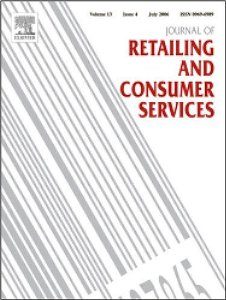 Special Issue: Journal of Retailing and Consumer Services
Special Issue: Journal of Retailing and Consumer Services
Luxury Services
Guest Editors:
Prof. JungKun Park, Hanyang University, Seoul, Korea.
Prof. Jiseon Ahn, Taylor’s University, Subang Jaya, Malaysia.
Email: Viroid2007@gmail.com
Deadline: March 30th, 2019
The Journal of Retailing and Consumer Services presents this call for papers for a special issue on “Luxury Services,” focusing on luxury service marketing and management.
Improvements in customers’ life quality have facilitated the growth of the luxury industry. The luxury industry has been growing rapidly and has become an important market segment (Kim, Kim, & Lee, 2010). The numbers and sales of luxury brands are increasing (Jeong & Park, 2006). According to D’Arpizio (2013), global revenues for the luxury industry increased by 62% in 2015 compared to 2005. Academic research has examined the concepts of luxury service because global luxury brands have extended their market from traditional product categories to the service category (Ahn, Park, & Hyun, 2018). Given the industrial and market conditions, luxury service providers and marketers must understand customer behavior, including experience, satisfaction, and future behavior in order to achieve sustainable growth. In particular, customers’ attitudes and behaviors in the luxury service setting is important because it can contribute to their value, performance, voluntary support and action, and competitive advantages. Furthermore, luxury companies should be able to measure and monitor customers’ response toward the service brand to differentiate themselves effectively from their competitors (Godey et al., 2016). Understanding how to manage the luxury service brand, sustain a personal link with customers, and retain current customers is increasingly critical.
In the luxury market literature, researchers have focused on the effect of customer experiences with luxury product brands (Prentice & Loureiro, 2018). The perspective on the multidimensional experience with luxury products emerged fairly recently. Recently, in the tourism and hospitality industry, scholars have applied the multidimensional characteristics of customers’ service experience to differentiate from the traditional product experience perspective (Moshin & Lockyer,2008; Wu & Liang, 2009). According to Chang, Ko, and Leite (2016), customers’ perceived quality, value, innovativeness, and popularity of the luxury brand lead to their loyal behavior. Similarly, in the luxury service setting, customer experience with luxury services is related to rational, emotional, physical, and psychological interaction across various services.
According to the service-dominant logic, customers’ perceived value of service is influenced by service experience (Helkkula et al., 2012; Vargo and Lusch, 2008). Also, Grönroos (2011) proposed that customers who have a positive experience tend to help service providers. In line with this, many global companies have provided luxury service-product packages and extended them into luxury experience –escape (Roy, Mutum, & Nguyen, 2017). Therefore, an increasing amount of research has tried to understand customers’ experience with service brands (Wu & Liang, 2009). In spite of the emerging centrality of luxury service brands, limited studies have been conducted to identify important antecedents and determinants of customers’ behavior in the luxury service setting. Furthermore, although previous studies have provided evidence of the potential of luxury services to enhance brand equity, there are still
some weaknesses (Huang & Cai, 2015; Liu et al., 2017). Thus, this call for papers for a special issue on “Luxury Services,” focusing on luxury service marketing and management was initiated.
The special issue is welcoming any research topic related to luxury services. Topics in this area may include, but are not limited to, the following:
- Luxury service extension (vertical or horizontal)
- Luxury services in restaurant, hospitality, and tourism industries
- Luxury services through online/mobile/ubiquitous commerce
- Luxury services and social media/word-of-mouth/promotion
- Retail development for luxury services
- Various consumer behavior within luxury services (value/satisfaction/loyalty…etc.)
- Service quality dimensions for luxury services
- Experiential luxury/Virtual reality
- Theoretical development of luxury services or definitional framework of luxury services
- The impact of information communication technologies on luxury services
- The future of luxury services
- The role of luxury service provider
- Job-related outcomes of luxury frontline service employees
- Aspect of emotional labor of frontline service providers
- Cross-cultural differences on consumption of luxury services
- Customer service management/contact center/AI for luxury services
- Changes and differences in customer relationship management (CRM) for luxury services
- Price and pricing strategy for luxury services
- Corporate social responsibility (CSR) activities of luxury companies
- Profiling of luxury consumers/Generation gap consuming luxury services
- Any other creative research for luxury studies
Authors are requested to send manuscripts to the guest editor (MS Word, double spaced, font 12) with cover letter and title including full names/affiliations of author(s). All manuscripts must be consistent with the author submission guidelines of the Journal of Retailing and Consumer Services (see author’s guidelines at
Full Manuscript Submission Deadline: March 30th, 2019 (with accepted papers published in late 2019 or early 2020)

